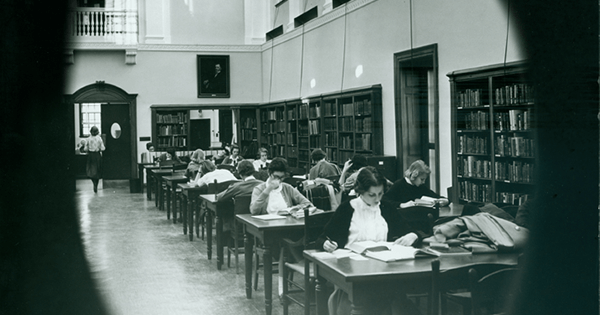
When I am teaching, and it is going well, I sometimes have the sense that the pedagogic transaction is occurring not just verbally, but through undercurrents that are partly erotic in nature. I feel a tenderness, a longing, or an attraction for students that is not unlike someone in love. And I like to imagine that they may feel a similar warmth for me as well.
We live in a time of such heightened sensitivity to sexual harassment that a professor will think twice before telling a student he likes her dress. To admit, as I am doing now, that one sometimes has amorous fantasies about one’s students seems risky, tantamount to breaking a taboo, or at very least icky, gross, on the order of fantasizing incest. But how could it be otherwise, given human nature? A psychological study once ascertained we have sexual thoughts about twice a minute. I teach in a graduate MFA writing program where there are many young women in their 20s, 30s, and 40s, so ardent and vital that entering a classroom can make your head swim. Over the years I’ve had mild crushes on any number of students: I say mild because it never amounted to much, and often some years later I can’t even recall their names, so how deep a crush can it have been?
Let me clarify: I have never dated, much less slept with, a student. I don’t expect credit for that: it is simply, as I see it, part of my professional code. When I began teaching, dalliances between professors and their students were common; and one even encountered successful marriages that came out of them. Still, there was an ugly power imbalance in the idea of hitting on one’s students (though it was not always clear who had the upper hand, the infatuated professor or the experimenting student). In any case, the point, it seems to me, is not to act on those feelings of attraction but to acknowledge and observe them, as they course through you and around the classroom.
To what extent does it happen the other way? I have no way of knowing. I assume it happened more when I was younger; and indeed I can remember one time when a very attractive student made her desire known to me, and I treated it as a case of transference: it wasn’t me she was in love with, I told myself, but some father-figure lover she had projected onto me. I notice that many of my ex-students seek me out for a chat after they have graduated, saying they miss me and want to catch up. I wonder if they had picked up some erotic spark, some partiality on my part by the number of glances I had directed toward them in class, say, were flattered by that attention, and wanted to see if it was still in operation. They give me hugs and kiss me on the cheek, which I try to take in the spirit of grand-daughterly regard. Some of them return because they were able to write freely under my tutelage, and would like to reanimate that sense of inspiration. Then again, it is not always the women who return: I have formed deep bonds with male students that became lifetime friendships. Some of the strongest attachments have occurred between middle-aged or elderly women and myself, the affection issuing from a wry appreciation of life’s challenges and survival.
I had one such student, Amelia, who had been practicing law for years before she decided she wanted to become a writer. She took several classes with me, and we always enjoyed each other’s sense of humor. Though an activist in her community, she never got on her moral high horse: she had a practical, down-to-earth sensibility and was in all respects a delightful human being. Last week, she died “of natural causes,” we were told (I assume a heart attack or seizure). I have been forcibly shaken by that loss. Theodore Roethke’s poem, “Elegy for Jane,” dedicated to “My Student, Thrown by a Horse,” comes to mind, with its beautiful last lines: “I, with no rights in this matter / Neither father nor lover.” Such is the teacher’s lot: to acquire tender feelings for one’s students, to relinquish them physically after graduation, to wish them the best, and to watch them from afar flounder, flourish, or perish.
Because death cut short any further conversation between Amelia and me, I am left to wonder at the nature of the satisfying communicative gift that took place between us. If I choose to root it somewhat simplistically in the word Eros, it is partly because I am a Freudian and lack the philosophical or mystical vocabulary to explain otherwise these currents of feeling. I only know that while I am trying, in the classroom or in a private conference, to put into words with students the most articulate phrases I can summon, as though I were writing aloud, all this verbiage provides the pretext or cover for an entirely intuitive ontological exchange. Simply put, we read each other. We breathe in each other with a shared recognition of our comic peculiarities and the poignancy of our being alive together in the same moment, alert and sexy and lonely and fragile. This may finally be the grain of truth in that humble brag, “I have learned as much from my students as they from me.” What we learn is—each other.

